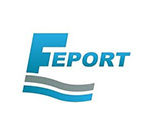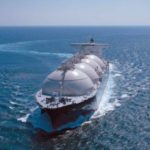Level playing field between EU ports and within the maritime logistics chain must remain high on the agenda of policy makers

The importance of harmonized implementation of “Fit for 55” proposals and more particularly AFIR, as a means to guarantee a real playing field between EU ports has been extensively debated during FEPORT General Assembly meeting held on June 2nd, 2023, at Saintes Maries de la Mer.
FEPORT members are satisfied that when voting on May 24TH, 2023 on the political agreement on the Alternative Fuels Infrastructure Regulation[1] and FuelEU Maritime[2], the European Parliament reaffirmed the responsibility of Member States in collaboration with the (port) managing body or another competent authority to provide shore-side electricity.
This position is consistent with Regulation 2017/352 establishing a framework for the provision of port services and the 2017 amendment to the General Block Exemption Regulation (GBER) and should not be a matter of heterogeneous implementation in the different European ports. If in some ports, private port operators would be compelled to invest into OPS while in others Member States other operators would not bear the costs of deployment of OPS, then this would create a non-level playing field between operators performing activities in different ports.
Although FEPORT members are still concerned by the risks of cargo diversion to the advantage to non-EU ports once ETS enters to force, they welcome that the Political Agreement on ETS requires the Commission to monitor cargo diversion related effects and propose measures if any impact is found. It will be important that this monitoring starts as soon as ETS enters into force.
The EU Parliament and Council agreement to earmark part of the EU ETS revenues (20 million allowances) for dedicated maritime calls under the Innovation Fund, which can also aim at improving energy efficiency in ports is a very good news that needs to be materialized in a near future.
The topic of the Council directive on ensuring a global minimum level of taxation for multinational groups in the Union, which will have to be transposed by Member States by the end of 2023, was also discussed as it represents a real opportunity to remind Member States that tonnage tax schemes can no more include income from inland transport – including loading and unloading operations, logistics and freight forwarding.
“It is time that the EU Commission requires Member States to apply EU rules[3] regarding the scope of eligibility to tonnage tax. FEPORT believes that the EU Commission which is the Guardian of the Treaty and of the equality of treatment between all economic sectors should restore a level playing field in terms of taxation within the maritime logistics chain.” says FEPORT President, Mr Gunther Bonz
“Our members are confident that the EU Commission will make the necessary amendments to all pieces of legislation and decisions which are in breach of OECD agreement as endorsed by all Member States and transposed by the Directive[4] since last December.“ concludes Mr Gunther Bonz.
Source: FEPORT

 Hellenic Shipping News Worldwide Hellenic Shipping News Worldwide, Online Daily Newspaper on Hellenic and International Shipping
Hellenic Shipping News Worldwide Hellenic Shipping News Worldwide, Online Daily Newspaper on Hellenic and International Shipping






















 PG-Software
PG-Software